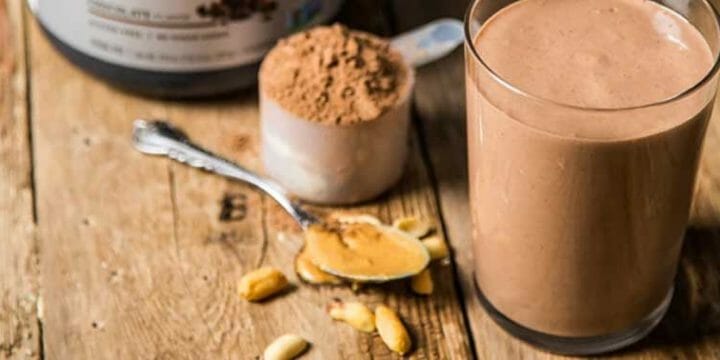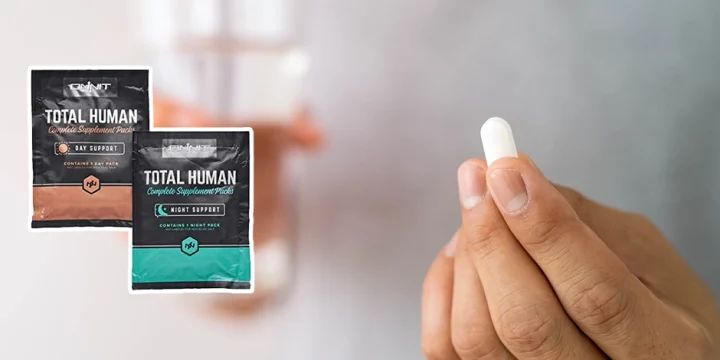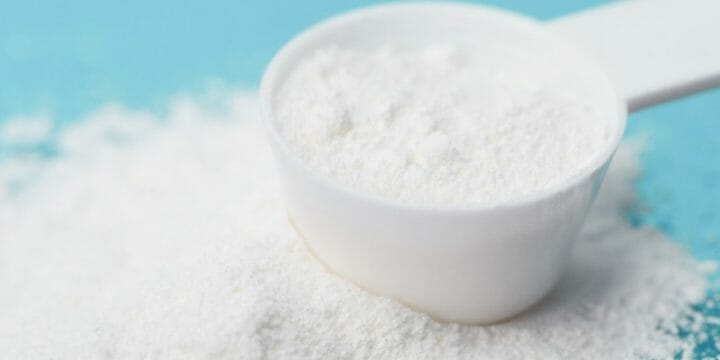Throughout my career, both in professional sports and as a fitness coach, I've encountered numerous athletes and clients who've used steroids for medical treatments and performance enhancements.
One thing that surprises a lot of people, especially those who don’t take them due to medical advice, is steroid-induced weight gain. In some cases, the increases in body weight are severe and can be difficult to control.
Drawing from my own experiences and those of my colleagues, I consulted with a medical doctor and dietitian to deepen my understanding of the effects of steroids.
Quick Summary
Does Taking Steroids Cause Weight Gain?
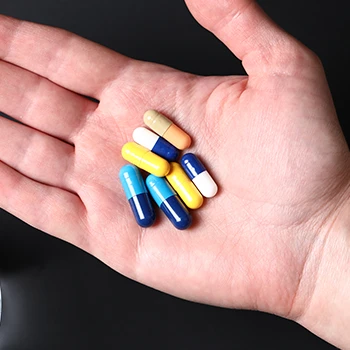
Yes, taking steroids can cause weight gain in a few different ways.
Main Reasons
According to the Cleveland Clinic, the two main reasons are the effects steroids have on your fat metabolism and appetite [1].
Steroids can alter how your metabolism functions, leading to fat redistribution around the body rather than burning it during exercise (more on this shortly).
Steroids can mess with your metabolism, causing fat to redistribute instead of being burned off during exercise. Plus, they often boost your appetite, leading to a hankering for fatty, sugary foods.
A 'Journal of Clinical Endocrinology and Metabolism' study revealed that glucocorticoids, a steroid variety, can alter gut bacteria. This change might shift how your body manages energy and stores fat [2].
Other Reasons
The other problem that affects weight you could encounter when using steroids is water weight gain [3].
During my time in competitive sports, I noticed that fluid retention was a common side effect among athletes using popular steroids.
All this means that these drugs could make you eat more, store more fat, and end up with a lot of retained fluid to add to your overall weight.
And while there are legitimate reasons to use these drugs to suppress the immune system or relieve joint pain from inflammation, it’s this kind of weight impact that doctors have to carefully monitor.
Monitoring the Weight Gain
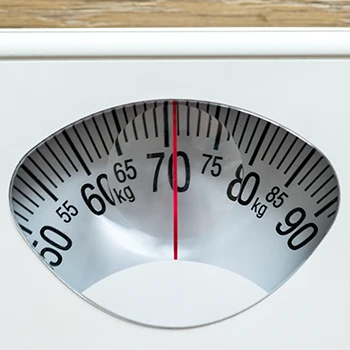
While certain anabolic steroids can help obese people burn stored fat rather than muscle, there are also impacts on how the body stores fat [4].
This is particularly the case with corticosteroids, where one study published in the Allergy, Asthma, and Clinical Immunology journal revealed that 70% of trial subjects experienced weight gain [5].
These steroids are often prescribed for swollen joints, inflammatory bowel diseases, and muscle stiffness. One of the first areas you might notice is facial weight gain.
“Weight gain from prednisone often appears as fat deposits on various parts of your body, such as at the base or back of your neck, around your abdomen, or as what’s called “moon face,” when changes in where fat lies make your face appear rounder and wider.”
- Kareem Sassi, MD at EverydayHealth.com
According to the medical doctor, it’s so common in steroid therapy that it’s often one of the top priorities to monitor.
A 2006 study published in the Arthritis Care and Research journal has also shown that such adverse events increase the longer people take steroids and the higher the dosage is [6].
And when you add the risks of high blood pressure and mental health issues into the mix, you get the picture of why it’s so dangerous to self-prescribe steroid therapy.
Furthermore, steroid-induced weight gain can significantly affect mental health, often leading to body image issues and increased stress, so it's crucial to address these psychological impacts alongside physical health concerns [7].
5 Tips for Preventing This Type of Weight Gain

In my journey from a national soccer player to an MMA champion, I've learned that preventing weight gain is crucial. I've gathered valuable insights from our doctor and dietitian on how to effectively avoid steroid-induced weight gain.
1. Focus on a Low-Calorie Diet
Yes, you’ll likely have some hunger cravings, and your appetite could increase a lot. But if you limit the availability of calories, you should be able to stop fueling the fat gain.
Avoid eating frequent meals, make sure you eat complex carbohydrates and fiber-rich foods, and avoid all sugar.
High blood sugar levels are one of the easiest ways to fuel fat storage, according to the Harvard School of Medical Health [8].
Related: How Many Carbs Should You Eat per Day to Lose Weight?
2. Avoid High Sodium Foods
Many processed and canned foods are rich in sodium, but you should also avoid things like soy sauce.
A high-sodium diet can result in retaining even more water on top of the effects of steroids [9].
3. Eat More Potassium Rich Foods
The electrolyte potassium has a direct impact on how your body processes and retains water. According to our dietitian, by adding more spinach, grapefruit, oranges, bananas, and kiwifruit, you should be able to counteract some water retention.
4. Stick with Healthy Fats
Steroid medications can make you crave fast foods. This source of poor nutrition can cause metabolic syndrome, based on a study published in the PLOS One journal [10]. The effect is fat redistribution, making it almost impossible to maintain a healthy weight.
Related: Healthy Fats That Are Good for You
5. Exercise
From my extensive training experience, I can attest that regular exercise is crucial in managing steroid-induced weight gain.
Cardiovascular activities like brisk walking or cycling can help burn excess calories, while strength training can counteract muscle wasting and improve metabolic rate.
Additionally, low-impact exercises such as yoga and swimming can be beneficial for those with joint pain or other physical limitations.
FAQs
Can You Lose Weight While on Steroids?
Yes, you can lose weight while on steroids. But this will require counteracting the side effects of weight gain through retaining water and lower energy expenditure than intake.
How Much Weight Do You Gain with Steroids?
How much weight you gain with steroids depends on the dose and the length of the cycle. Factors like your starting weight and metabolic rate also play a significant role.
References:
- https://my.clevelandclinic.org/health/drugs/4812-corticosteroids
- https://pubmed.ncbi.nlm.nih.gov/28624548/
- https://health.clevelandclinic.org/8-prednisone-side-effects-how-to-minimize-them/
- https://www.ncbi.nlm.nih.gov/pmc/articles/PMC5054608/
- https://www.ncbi.nlm.nih.gov/pmc/articles/PMC3765115/
- https://onlinelibrary.wiley.com/doi/epdf/10.1002/art.21984
- https://www.mayoclinicproceedings.org/article/S0025-6196(11)61160-9/pdf
- https://www.hsph.harvard.edu/nutritionsource/carbohydrates/carbohydrates-and-blood-sugar/
- https://www.webmd.com/diet/why-am-i-retaining-water
- https://www.ncbi.nlm.nih.gov/pmc/articles/PMC4598125/
About The Author
You May Also Like

